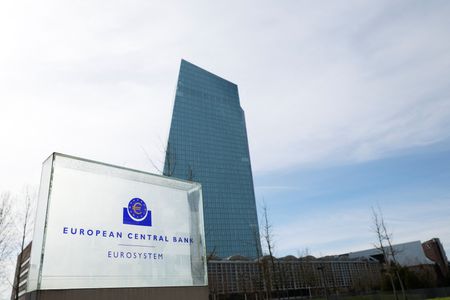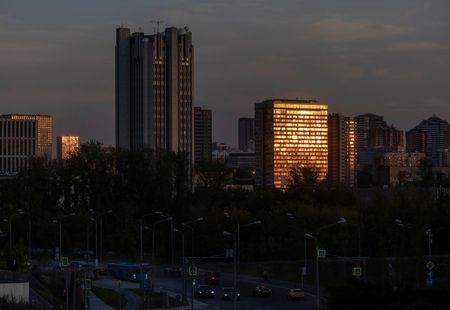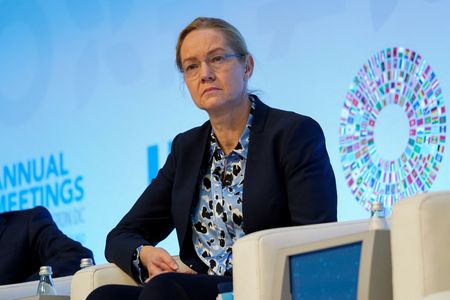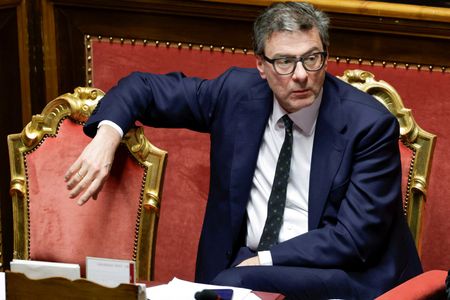FRANKFURT (Reuters) -The Euro zone inflation shock is nearly defeated and even if a global trade war could push up prices later on, projecting stability in turbulent times was key, ECB policymakers argued when they cut interest rates in April, the accounts of their meeting showed.
The European Central Bank cut interest rates for the seventh time in a year last month and warned that economic growth will take a big hit from U.S. tariffs, bolstering bets for even more policy easing in the months ahead.
“Members expressed increased confidence that inflation would return to target over the medium term and that the fight against the inflation shock was nearly over,” the ECB said in the accounts of that meeting. “Disinflationary forces were thus likely to dominate in the short term.”
Some policymaker argued that a global trade war could turn out to boost prices later on but the majority concluded that frontloading rate cuts projected much needed stability just when financial markets were showing excessive volatility.
“Members stressed the need to be a beacon of stability, thus instilling confidence and not causing more surprises in an already volatile environment, which might amplify market turbulence,” the accounts said.
Still, some policymakers warned that risks were skewed towards higher than projected inflation readings, particularly in the longer-term, since deglobalisation and trade barriers will inherently increase costs for firms.
“These members attached a higher probability to the possibility that the trade shock would be inflationary beyond the short term, in view of the destructive effects of breaking up global value chains,” the minutes added.
These policymakers also warned that if the current bump in the economy proved short lived because trade tensions are resolved, the ECB’s support would kick in just when the economy was rebounding.
In addition, fiscal support is likely to increase by then so the risk was the ECB could be providing excessive and unnecessary support.
While a lot of the trade tension has eased since the April meeting, pervasive uncertainty continues to weigh on sentiment, keeping bets firmly in place for another ECB rate cut on June 5.
Financial investors see an around 90% chance of an ECB rate cut next month and expect one more move this year before the ECB’s deposit rate bottoms out at 1.75%.
This corresponds to the lower end of the ECB’s estimated neutral range, where the bank neither stimulates, nor holds back growth.
(Reporting by Balazs KoranyiEditing by Francesco Canepa and Susan Fenton)











